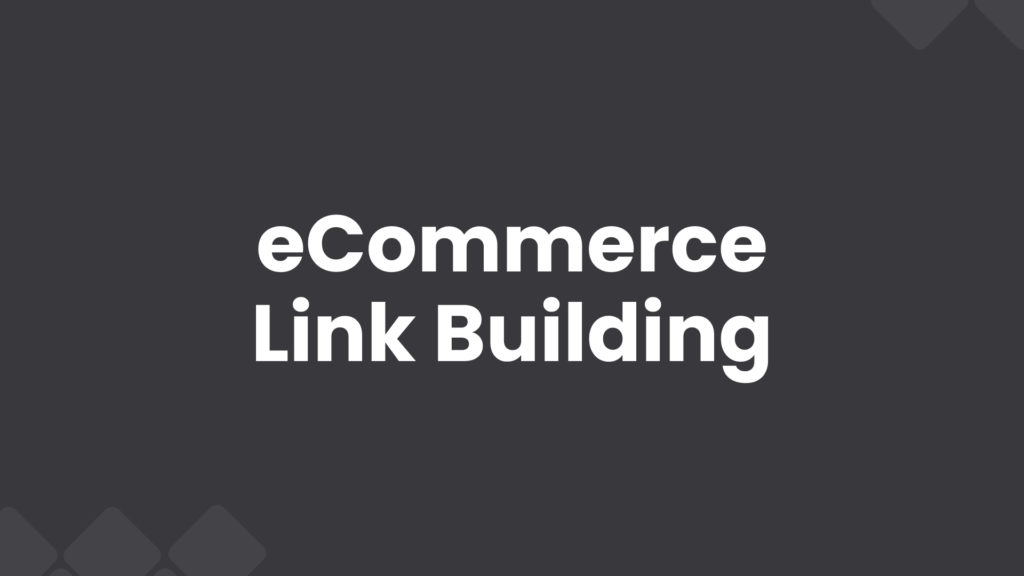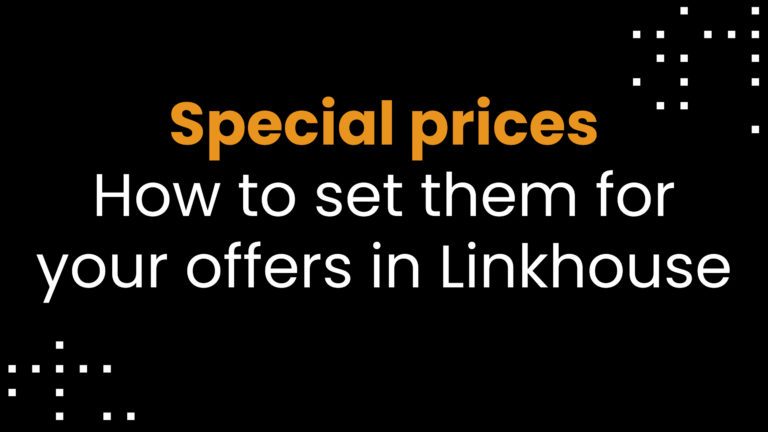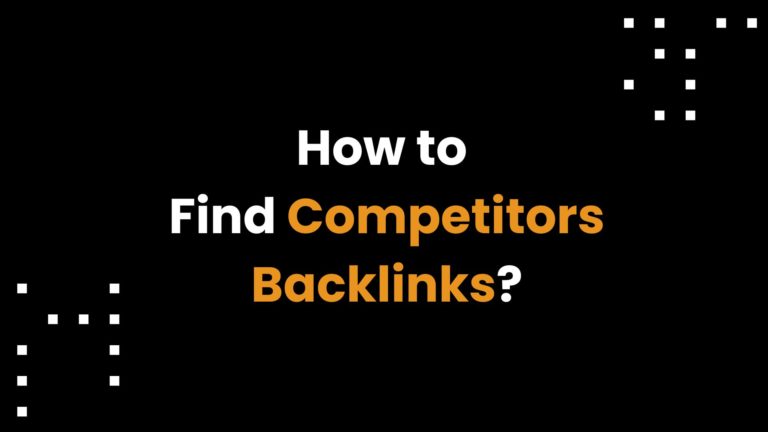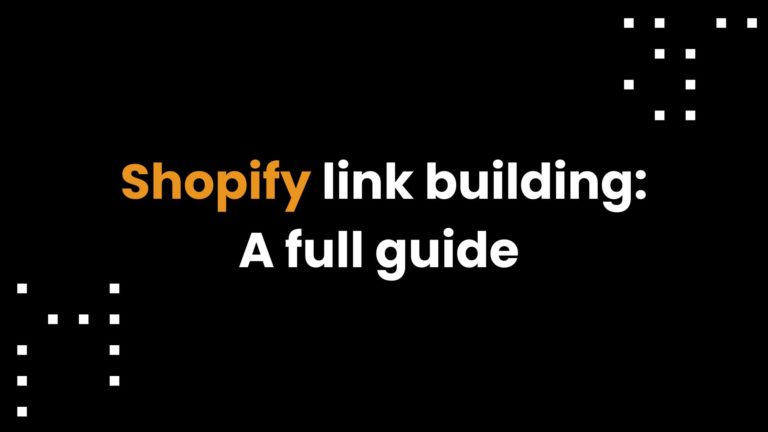What are the best strategies for e-commerce link building? You should utilize HARO, gather product reviews on other websites, conduct blogger outreach and niche edits, publish press releases, find unlinked brand mentions, invest in guest postings, and make use of link building marketplaces. In this article, we discuss these effective link building tactics for ecommerce in more detail – we invite you to read on!
What Is a Link Building Strategy?
A link building strategy is a methodical approach and set of tactics aimed at building a rich backlink profile – acquiring links from other websites that lead to your ecommerce store. It’s conducted because links are a critical factor in search engine optimization (SEO) – they indicate that your website is authoritative, hence resulting in Google displaying your pages in higher positions in search engine results pages (SERPs).
In general, you want to acquire as many backlinks as possible. However, it’s not that simple. In order for your ecommerce link building strategy to work, you need to acquire high-quality links (from authoritative websites), have a diverse link portfolio, and get the links posted on the right anchors alongside relevant content.

Why Do You Need an eCommerce Link Building Campaign Strategy?
As we briefly mentioned above, acquiring inbound links is highly beneficial in terms of SEO. However, that’s just the tip of the iceberg – there are many additional perks of conducting link building tactics for your e-commerce store, so let’s look at them now.
- Building website authority – Links transfer power from the website they are posted on to your webpages. This translates directly into higher positions in SERPs.
- Increasing brand awareness – If your backlinks are published on websites in high traffic, they don’t only transfer the SEO juice, but also generate additional traffic to your ecommerce store. This way, more people learn about your brand.
- Increased sales – A good link will increase your site’s authority and gather some traffic. A great link does both, with one additional perk – driving sales. If your backlinks are located alongside truly relevant content targeted at people close to or with commercial intent, they will generate leads that are ready to be converted right away.
7 Effective eCommerce Link Building Tactics
We’ve discussed the SEO juice, so now it’s time to get to the juicy part of this article. What are the best ways to conduct link building for ecommerce sites? Here are some proven strategies!
1. Linkhouse Link Building Platform
Let’s start by discussing our link building platform and its capabilities for ecommerce link building efforts. How can it help your store? To understand that, we need to look into its main features. As an ecommerce website owner, you will be mostly interested in two of the functionalities:
- Link building marketplace – This is a platform where you can acquire thousands of links from different websites. The system is simple – you can include filters to search for relevant sites, then see their metrics (based on the best SEO tools, like Ahrefs), and get offers to buy links on each of them. This way, you can easily manage your links inventory and acquire new backlinks with little effort.
- Link building tool – You might also be interested in our link planner – an AI-powered tool that enables you to plan and conduct your ecommerce link building campaigns. It’s really intuitive – you choose the parameters that interest you and our system provides you with a strategy, one that you can further modify if you wish to.
Using our platform is one of the most time-efficient ways to enrich your backlink profile – after all, you get all the potential linking opportunities in one place. It’s a fast way to get your e-commerce website a nice inbound link boost, but the benefits reach far beyond that – let’s take a look at a full list of advantages now.
- Quick link building – With our platform, you can acquire links faster than with any other method.
- Transparent pricing – By getting inbound links from our marketplace, you know exactly what you receive and how much you pay.
- Complete info – You don’t have to scroll through several SEO tools to verify whether a website is worth your time and money – you’ve got all the data in one place.
- Up to date – We’re proud to say that we refresh our databases every 7 days, so you have a guarantee that you work on the most up-to-date data.
- Effective ecommerce link building – If you use our platform, you can be sure that your link building efforts are fruitful.
2. Utilize HARO
Haro or Help a Reporter Out is a platform for journalists and bloggers where they can leave queries regarding content. If you create an account on it, you will start receiving emails with questions about topics related to your industry.
When you answer such a question, there is a high likelihood that the author of the content will link to your website. This way, you can acquire backlinks naturally, without having to put much effort into this tactic.
3. Build Links to Your Site Through Niche Edits
Niche edit might take some time, but it’s an effective way to get really valuable backlinks – ones that will get you both the SEO juice and some traffic. How does it work?
It’s pretty simple. You search the web for content relevant to the products in your e-commerce. When you find something that looks promising, you contact the webmaster or website owner and ask them to insert a link to one of your product pages that matches the topic of the article. This way, you’ll get your link on sites that attract real organic traffic and transfer a part of it to your store.
Seems too ideal to be true, doesn’t it? Naturally, this ecommerce link building tactic has one serious downside – you usually need to pay for the link insertion, and the price depends purely on the owner of the website you want your link on. Thus, while it is effective, you need to carefully calculate whether such a strategy will really be profitable.
4. Guest Posting
Guest posts are one of the most effective link building strategies since such links are placed alongside longer content that links only to your website. This means that they transfer A LOT of SEO juice. However, this strategy has a major downside – you need to both find an adequate website to post your content on, and create the content itself.
Thankfully, this disadvantage can be mitigated. How? You can buy guest posting! For instance, at Linkhouse we offer you an option to choose what website parameters interest you (you can select between organic traffic and domain authority), add some guidelines for the content and the keyword that you want to target, and that’s it. We create the content and publish it for you, so you don’t need to waste precious resources on creating guest posts and can focus on writing valuable articles to publish on your blog.
5. Get Backlinks to Your Product Pages Through Product Reviews
Another effective SEO link building strategy for your ecommerce is to utilize product reviews. You can contact experts and influencers in your field, offer them your products, and ask for a review (with a link on a given anchor) in exchange. This way, you won’t pay much and get high-quality links.
If your product is excellent, this strategy becomes even more effective – not only do you get a relevant link to your product page, but you also attract the given expert’s/influencer’s followers to actually visit your store and, likely, make a purchase.
6. Boost SEO and Brand Awareness with Press Releases
Press releases about your newest products are also an excellent way to build links to your ecommerce naturally. You can also use social media for this sake and add a bit of digital PR to the mix – the more people talk about your products, the more likely they are to include links to them in their comments, personal blogs, etc.
7. Advance in SERPs with the Broken Link Building Strategy for Your eCommerce
Broken link building is pretty simple in theory, and a bit harder to conduct in practice. This is a strategy that involves finding links that lead to content that no longer exists and offering the owners of these links to replace the non-existent content with your own.
Why is it effective? If you have valuable texts, graphics, or videos to offer on the relevant topics, this tactic won’t cost you anything apart from time. Plus, it’s a great way to get links from high-authority websites without it costing you an arm and a leg.
8. Find Unlinked Brand Mentions and Request Backlinks to Your E-Commerce
Did somebody mention your brand, but didn’t link to your website? Reach out to them and try to convince them to add a backlink! Often, it’s enough to send one email and you can get a valuable link for free, so be sure to introduce this tactic in your ecommerce link building strategy.
Key Takeaways
As you can see, there are numerous effective link building tactics for e-commerce stores. Which ones to choose? In our opinion, you should try combining all of them. This way, you will naturally build a diverse backlink profile and gather as many high-quality, relevant links as possible. Remember that link building is a process – you won’t get it done overnight, so equip yourself with patience and get ready to put your e-commerce link building campaigns into action.
FAQ
What are the key strategies for effective link building for ecommerce websites?
Effective strategies for link building for e-commerce websites involve a variety of tactics. Key strategies include utilizing blogger outreach to secure blog posts, implementing broken link building to replace dead links with links to your site, and leveraging product reviews to get external sites to link back to your product pages. These techniques help build a robust link profile, which is essential for improving your ecommerce site’s ranking.
How can ecommerce link building improve the SEO of my online store?
Link building for ecommerce SEO is the process of getting other websites to link back to your ecommerce site, which significantly improves its visibility and ranking on search engines. By increasing the number of high-quality backlinks, you enhance your site’s authority and relevance, leading to better SEO outcomes and increased organic traffic to your online store
Can you explain the importance of a diverse link profile for ecommerce sites?
A diverse link profile is crucial for ecommerce sites because it demonstrates to search engines that multiple credible sources find your content valuable. This not only boosts your site’s SEO performance but also stabilizes your rankings by spreading your backlink sources across various industries and website types. Building a diverse link profile involves engaging different link building tactics for ecommerce, from content creation to active outreach.
How can internal linking help as part of link building for e-commerce?
Internal linking is an essential part of ecommerce link building that involves linking from one page of your site to another using relevant anchor texts. This tactic helps spread link equity throughout your site, which can improve your ecommerce site’s overall SEO performance. Internal linking makes it easier for search engines to crawl and index your site, helping important product pages to rank better and enhance the user experience by providing additional, relevant information.








